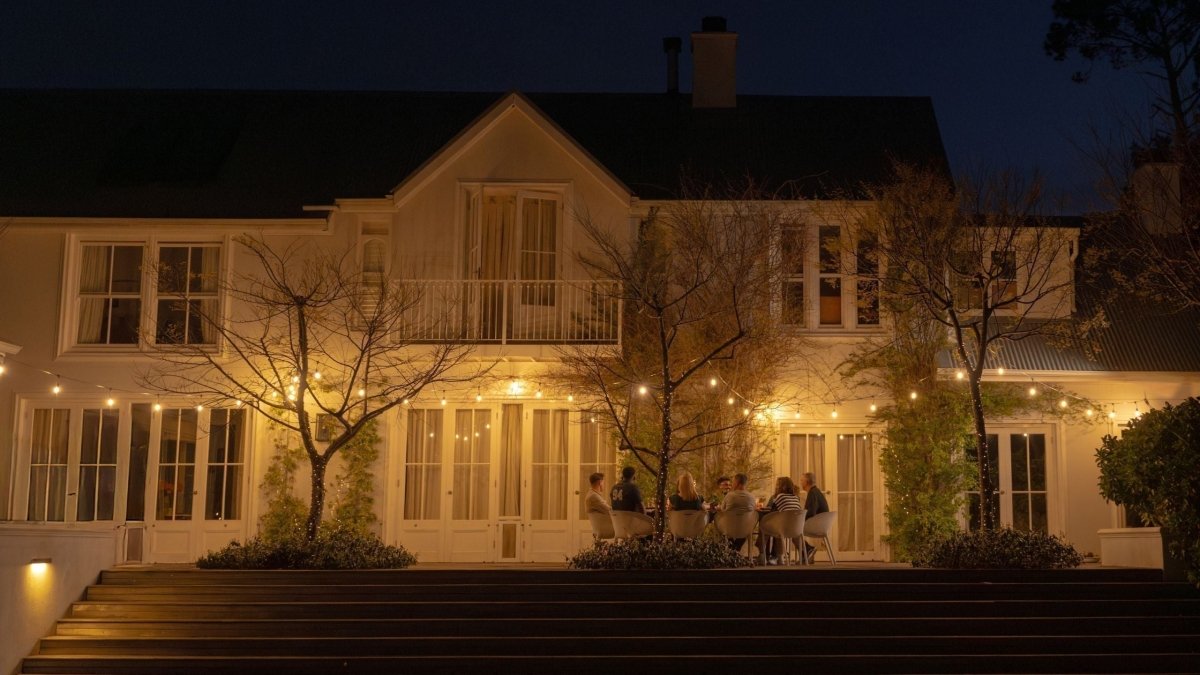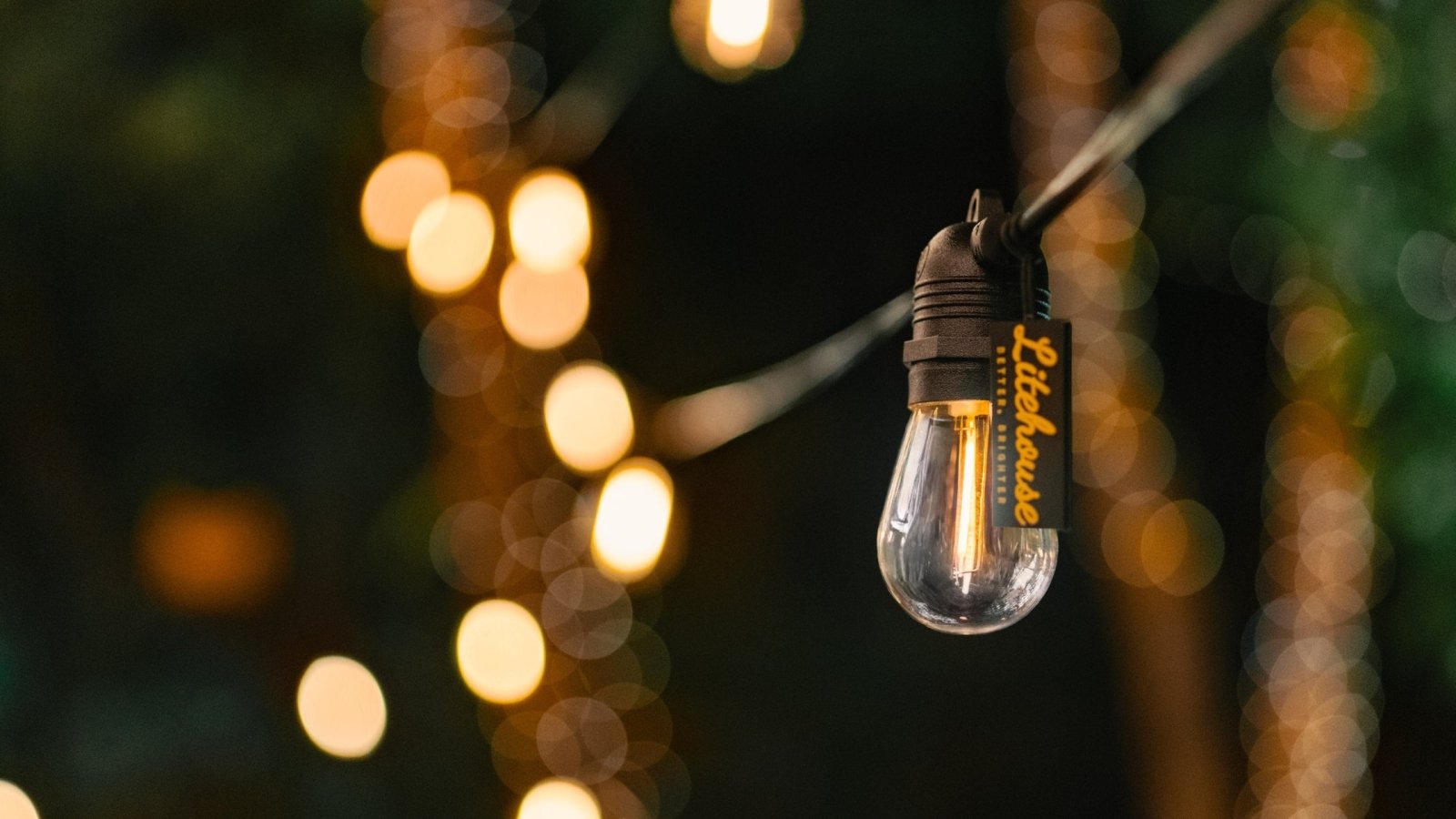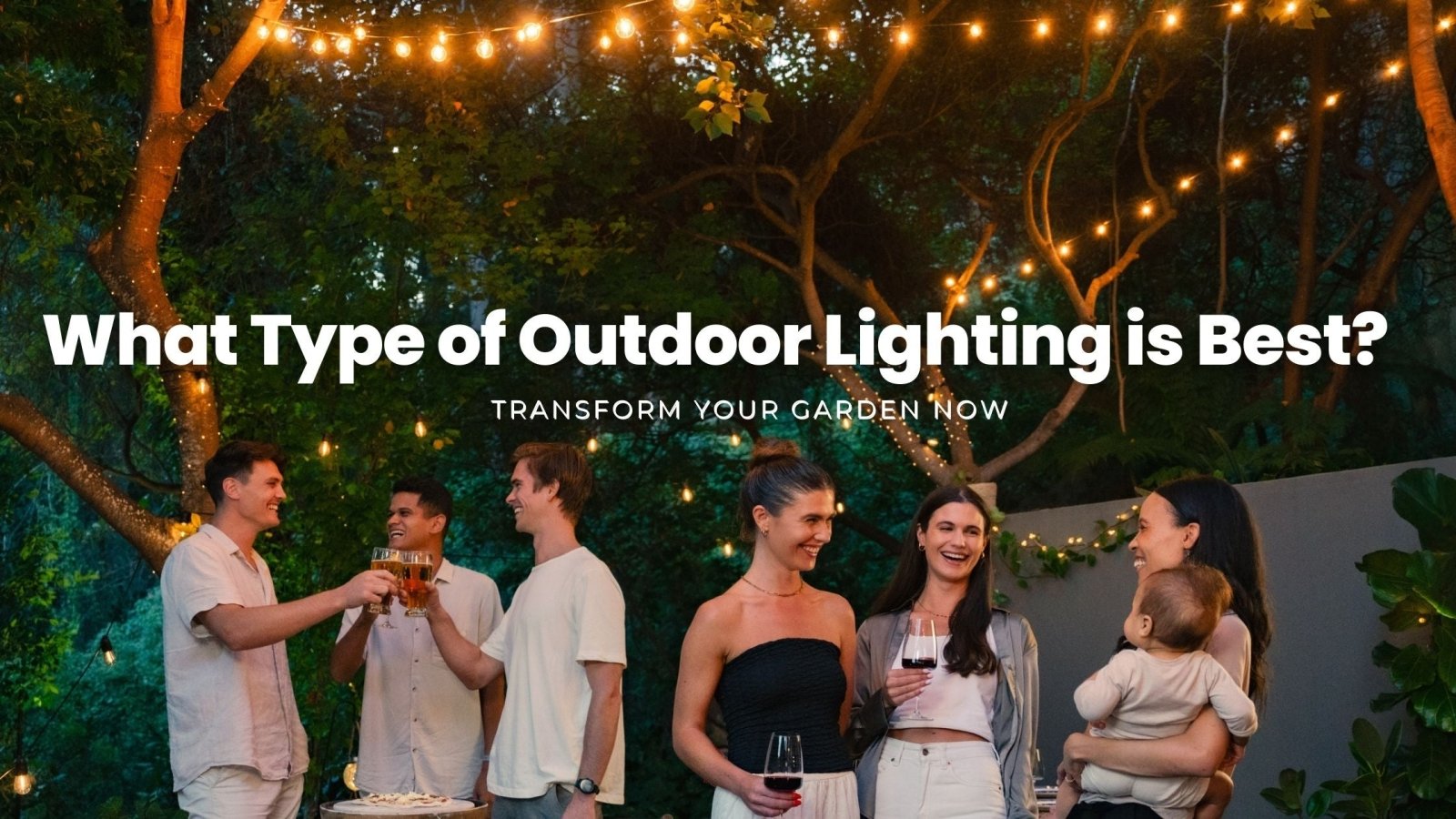When it comes to enhancing our outdoor spaces, solar lights have become a popular choice. They offer an energy-efficient solution that’s both eco-friendly and cost-effective. But with so many brands on the market, how do we determine which one stands out as the best?
In this article, we’ll explore the top brands of solar lights, focusing on their features, durability, and overall performance. Whether we’re looking to illuminate our garden, patio, or campsite, finding the right solar lights can make all the difference in creating a warm and inviting atmosphere. Let's dive into what makes a brand truly shine in the world of solar lighting.
Key Takeaways
- Energy Efficiency: Solar lights are an eco-friendly and cost-effective solution for outdoor illumination, harnessing renewable energy from the sun to reduce electricity bills and carbon footprints.
- Types and Uses: Various types of solar lights, such as solar string lights, garden lights, wall lights, and indoor lights, cater to different needs— from decorative purposes to functional applications like pathway lighting and security.
- Performance Factors: Key factors to consider when selecting the best solar lights include brightness levels, battery life, solar panel quality, build quality, and aesthetic design, all of which affect overall performance and durability.
- Installation and Maintenance: Solar lights are generally easy to install and maintain, though optimal positioning for maximum sun exposure and regular cleaning of solar panels can significantly enhance their efficiency.
- Brand Highlights: While the review focuses on various brands, Litehouse is highlighted for its innovative and high-quality solar lighting solutions, offering a blend of style, durability, and sustainability.

Understanding Solar Lighting Technology
Litehouse is on a mission to become South Africa's top-rated brand for ambiance lighting, offering innovative, premium, and decorative lighting solutions. We know the value of outdoor spaces and the magic they can bring to gatherings or quiet evenings. Let's explore why Litehouse stands out and how you can easily enhance your space with our products.
Types of Solar Lights
We offer various types of solar lights to meet different needs and tastes. These include:
- Solar String Lights: Perfect for creating a cosy atmosphere on patios and decks. For example, our fairy lights are popular for festive decorations.
- Solar Garden Lights: Great for illuminating pathways and garden features. They also add safety and beauty to your garden.
- Solar Wall Lights: Ideal for lighting up entrances, walkways, and garages. These are practical yet stylish.
- Indoor Solar Lights: Perfect for use during power outages or in areas without electrical connections.
Solar lights provide the versatility needed to make any space inviting.
How Solar Lights Work
Solar lights harness energy from the sun to provide illumination without the need for electrical cords. The process involves:
- Absorption: Solar panels absorb sunlight during the day. It's crucial to place the panel in direct sunlight for at least 6-8 hours to ensure full battery charge.
- Conversion: The solar panel converts sunlight into electrical energy, which is stored in rechargeable batteries.
- Activation: Built-in light sensors detect when it gets dark and automatically turn on the lights, creating a warm and enchanting ambiance. It's that simple!
Step-by-Step Installation Guide
Step 1: Choose the Location
Decide where you want to place your solar lights. Ensure the location gets ample sunlight.
Step 2: Secure the Solar Panel
If you're installing wall or garden lights, use the provided clips and stakes to secure the solar panel.
Step 3: Position the Lights
Hang or position the lights in your desired configuration. Solar string lights can be wrapped around trees, fences, or pergolas.
Step 4: Test the Lights
Once installed, test your solar lights by covering the solar panel to simulate darkness and ensure they turn on.
Tips for Maximising Performance
- Optimal Positioning: Place the solar panel in a location where it can absorb maximum sunlight.
- Regular Cleaning: Clean the solar panels periodically to remove dust and debris.
- Battery Maintenance: If your lights have replaceable batteries, consider exchanging them every 1-2 years for consistent performance.
Explore more tips and our range of products at Litehouse.

Factors to Consider When Choosing Solar Lights
Selecting the best solar lights for your outdoor or indoor space entails considering several crucial factors. Let's delve into what you should look at when making your decision.
Brightness Levels
Brightness varies significantly across different solar lights. These lights come with various lumen outputs, which measure the light's brightness. While some lights are ideal for decorative purposes and provide a soft glow, others are designed for functional purposes and offer higher intensity. For example, solar fairy lights often emit a warm, gentle light, creating an enchanting ambience. On the other hand, solar garden lights may provide brighter illumination, making them perfect for pathways or security purposes. It's essential to match the light's brightness with its intended use.
Battery Life and Solar Panel Quality
The effectiveness of solar lights heavily depends on battery life and solar panel quality. High-quality solar panels capture more sunlight, which translates to longer-lasting lights. Typically, you want a solar panel that can receive direct sunlight for at least 6-8 hours a day to fully charge its batteries. A robust battery ensures your lights stay on throughout the night. For instance, Litehouse uses premium solar panels in their products, guaranteeing extended battery life and reliable performance. Checking for battery capacity (measured in mAh) can offer insights into how long the light will run on a single charge.
Build Quality and Durability
Durability is a major factor, especially for outdoor solar lights. These lights must withstand various weather conditions, from intense sun exposure to heavy rain. When evaluating build quality, look for weather-resistant and waterproof ratings such as IP65 or higher, indicating good protection against dust and water. We often find that high-end solar lights, like those offered by Litehouse, employ materials like stainless steel or durable plastic, ensuring longevity and consistent performance.
Design and Aesthetics
Design and aesthetics play a huge role, particularly for decorative garden lights or fairy lights. The style should complement the overall look of your space. For example, solar wall lights can add a modern touch to your walls, while solar string lights can infuse a whimsical vibe into your patio. Litehouse excels in blending functional performance with beautiful design, allowing us to create visually appealing setups.
Installation and Maintenance
Ease of installation and maintenance is another important factor. Most solar lights, including those from Litehouse, come with user-friendly installation processes. Typically, they include stakes, clips, or screws, making setup quick and straightforward. For maintenance, ensure the solar panels are clean and free from dust or debris, as this can affect their efficiency. Regular checks and occasional repositioning to optimise sun exposure will keep your lights functioning at their best.
Review of Popular Solar Light Brands
So you've heard about Litehouse, right? If you haven't, let us fill you in. Litehouse aims to be South Africa's top choice for decorative lighting, bringing innovative and high-end solutions to your home or garden. Think of enchanting solar fairy lights for your patio or robust solar wall lights for added security. Let's delve into why Litehouse is making waves in the lighting industry.
Solar lights product Showcase:
- Litehouse Solar Outdoor LED Fairy Lights - Copper Wire


- Litehouse Solar Festoon Outdoor Bulb String Lights - Traditional LED Bulbs, Black


- Litehouse Solar Outdoor LED Fairy Lights - Black String


- Litehouse Solar Mini Outdoor Bulb String Lights - Classic LED Bulbs, Black


Why Choose Litehouse?
Because who doesn't want to blend style with sustainability? Litehouse offers a range of solar garden lights, solar string lights, and even solar fairy lights designed to enhance any outdoor space. The eco-friendly solar panels absorb energy from the sun during the day, providing efficient lighting at night without running up your electricity bill.
Step-by-Step Tutorial: Setting Up Your Solar Lights
- Unbox and Inspect: Carefully unbox your Litehouse solar lights. Check for any damage or missing parts.
- Assemble the Lights: Follow the manual. Most of the time, it's just a matter of attaching the lights to their stakes.
- Place the Solar Panel: Position the solar panel where it can get direct sunlight, avoiding shade.
- Install the Lights: Push the stakes into the ground or attach wall-mounted units.
- Turn on the Lights: Let them charge, and be amazed when they light up your space in the evening.
Insights & Tips for Maximum Efficiency
- Optimal Panel Positioning: Ensure the solar panel faces the sun directly for maximum energy absorption.
- Regular Maintenance: Wipe the panels clean of dust and debris to maintain efficiency.
- Winter Care: Store the lights during harsh winters to extend their lifespan.
Innovative Offerings from Litehouse
Litehouse isn't just about basic lighting. Their range includes:
- Solar Fairy Lights: Perfect for adding a magical touch to your garden or patio.
- Solar Bulb String Lights: Ideal for events and outdoor gatherings.
Each type of light comes with unique features like dimmable settings and automatic daytime shutoff.
Real-Life Example: Transforming Your Patio
Picture this: a drab patio area transformed into a cosy, inviting space with just the addition of some Litehouse solar string lights. The warm, ambient glow creates a perfect setting for evening gatherings or a quiet night alone.
Why Litehouse Stands Out
We pride ourselves on using quality materials, ensuring our products are not only stylish but durable. Whether it's the sturdy build of our solar wall lights or the elegant design of our solar fairy lights, you know you're getting the best. For more information, visit Litehouse.
So why wait? Start transforming your space with Litehouse, your go-to brand for premium, decorative, solar lighting solutions.

Environmental and Economic Benefits of Solar Lights
Solar lights are gaining popularity for several reasons, including their positive impact on the environment and their cost-saving advantages. Using solar lights like the ones from Litehouse helps us make a substantial difference. Here’s how.
Sustainability Factors
Solar lights rely on renewable energy from the sun, reducing the need for non-renewable energy sources and lowering our carbon footprint. By choosing solar fairy lights or solar string lights, we contribute to a cleaner, greener planet. These lights eliminate the need for wiring or electrical outlets, which reduces construction material waste and minimises environmental disruption.
Automatic light sensitivity sensors in solar lights, which detect the transition from daylight to dusk, enhance energy efficiency by ensuring the lights are only on when necessary. Moreover, advances in solar panel technology mean even cloudy days can provide enough power for several hours of illumination.
Long-Term Cost Savings
Although the upfront cost for solar lights might be higher compared to traditional lighting solutions, the long-term savings are significant. Solar lights incur no additional energy costs since they don’t draw power from the grid. Installing solar garden lights or solar wall lights leads to considerable reductions in electricity bills over time.
Maintenance costs are also lower. Solar lights are designed to be durable and weather-resistant, meaning fewer replacements and repairs. The built-in components, like the ones in Litehouse solar outdoor lights, ensure longevity and reliability.
By investing in high-end solar lights, we not only save money but also enhance our outdoor spaces with stylish and sustainable lighting solutions.
For more information, visit Litehouse.
Conclusion
Choosing the best brand of solar lights can transform our outdoor spaces into eco-friendly havens. Litehouse stands out with its innovative and high-quality solutions. Their range of solar lights not only offers environmental and economic benefits but also adds a touch of elegance to any setting. By opting for Litehouse's solar lights, we can enjoy sustainable and cost-effective lighting while contributing to a greener planet. Investing in these advanced solar lights ensures we benefit from the latest technology and stylish designs, making our outdoor areas both beautiful and functional.
Frequently Asked Questions
What types of solar lights does Litehouse offer?
Litehouse offers a variety of solar lights, including solar fairy lights, wall lights, and other innovative lighting solutions designed to enhance outdoor spaces.
How do solar lights work?
Solar lights function by converting sunlight into electrical energy using solar panels. This energy is stored in rechargeable batteries and used to power the lights after sunset.
What are the benefits of using solar lights?
Solar lights provide numerous benefits, including reducing electricity bills, eliminating the need for complex wiring, and contributing to environmental sustainability by lowering the carbon footprint.
Are solar lights easy to install?
Yes, solar lights are generally easy to install since they do not require any wiring. Most models can simply be placed in a spot that receives adequate sunlight.
How do I maintain my solar lights?
Maintenance involves regularly cleaning the solar panels to ensure maximum efficiency and occasionally replacing rechargeable batteries when their performance diminishes.
Do solar lights work on cloudy days?
Yes, solar lights can still charge on cloudy days, though their efficiency may be slightly reduced compared to bright, sunny days.
Can solar lights be used during winter?
Yes, solar lights can be used during winter. However, their performance might be impacted by reduced daylight hours and potential snow coverage on the solar panels.
What makes Litehouse's solar lights unique?
Litehouse’s solar lights are known for their high-quality construction, advanced solar panel technology, and stylish designs that enhance both functionality and aesthetics in outdoor spaces.
Do solar lights really help save money in the long run?
Absolutely. By relying on solar energy, these lights reduce electricity consumption, resulting in long-term cost savings on utility bills.
What are automatic light sensitivity sensors in solar lights?
Automatic light sensitivity sensors enable solar lights to turn on and off based on the surrounding light conditions, ensuring efficient use of stored energy.
Are there any environmental benefits to using solar lights?
Yes, solar lights are environmentally friendly as they use renewable energy, reduce carbon emissions, and eliminate the need for disposable batteries.










Leave a comment
This site is protected by hCaptcha and the hCaptcha Privacy Policy and Terms of Service apply.